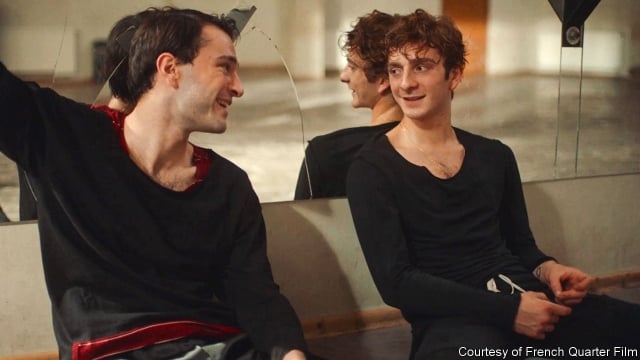Georgian hate groups are mobilizing against the premiere of “And Then We Danced”, a Georgian-Swedish film with gay protagonists, in Georgia’s capital, Tbilisi on Friday, November 8.
The screenings in Tbilisi’s movie theaters are set to take place between 8 and 10 of November. Georgian media reported that all tickets, around 5000, were sold out.
Sandro Bregadze, leader of ultra-conservative, nativist Georgian March, (pledged not to allow the screenings to go ahead, speaking to the press on October 31 and November 4. Bregadze, who served as the deputy minister for diaspora issues in 2014-2016, condemned the film as “homosexual propaganda” and said those who are going to see it “are or want to be gays”. He also suggested he has seen the pirate copy of the film and found it “revolting”.
Levan Vasadze, self-styled “knight” and ultra-conservative, with connections to Russian “Eurasianist” movement and its leader Alexander Dugin, also threatened to disrupt the screenings in all five cinemas that will air the film, saying they will “push away” the police if need be.
- “We will overwhelm you!” hate groups tell the Police, menacing Tbilisi Pride
- Police detain nine as radical groups confront LGBTQI activists
- Gallery: Hate groups confront activists on 14 June
Andria Jagmaidze, head of the public relations office of Georgian Orthodox Church also condemned the movie. In his interview with TV Pirveli, Jagmaidze claimed “[the movie] is yet another attempt to downplay Georgian, Christian values.” He also noted that the Orthodox Church will “express a large protest” against the movie screening in Georgia.
The Georgian ombudsperson called upon the Interior Ministry to ensure safety of LGBTQ persons, as well as of the moviegoers. The Ombudsperson’s office also officially addressed the ministry on November 5 to undertake preventive measures.
Equality Movement, Georgian Queer rights group, also called on the police to ensure safety of the attendees. The organization underlined “a tense situation, that is evident as the Georgia premiere is set to take place without the cast, due to safety concerns.”
The Interior Ministry told the media that they will “undertake measures envisaged by the law.”
Read also:
A story of one march
This post is also available in: ქართული (Georgian) Русский (Russian)

